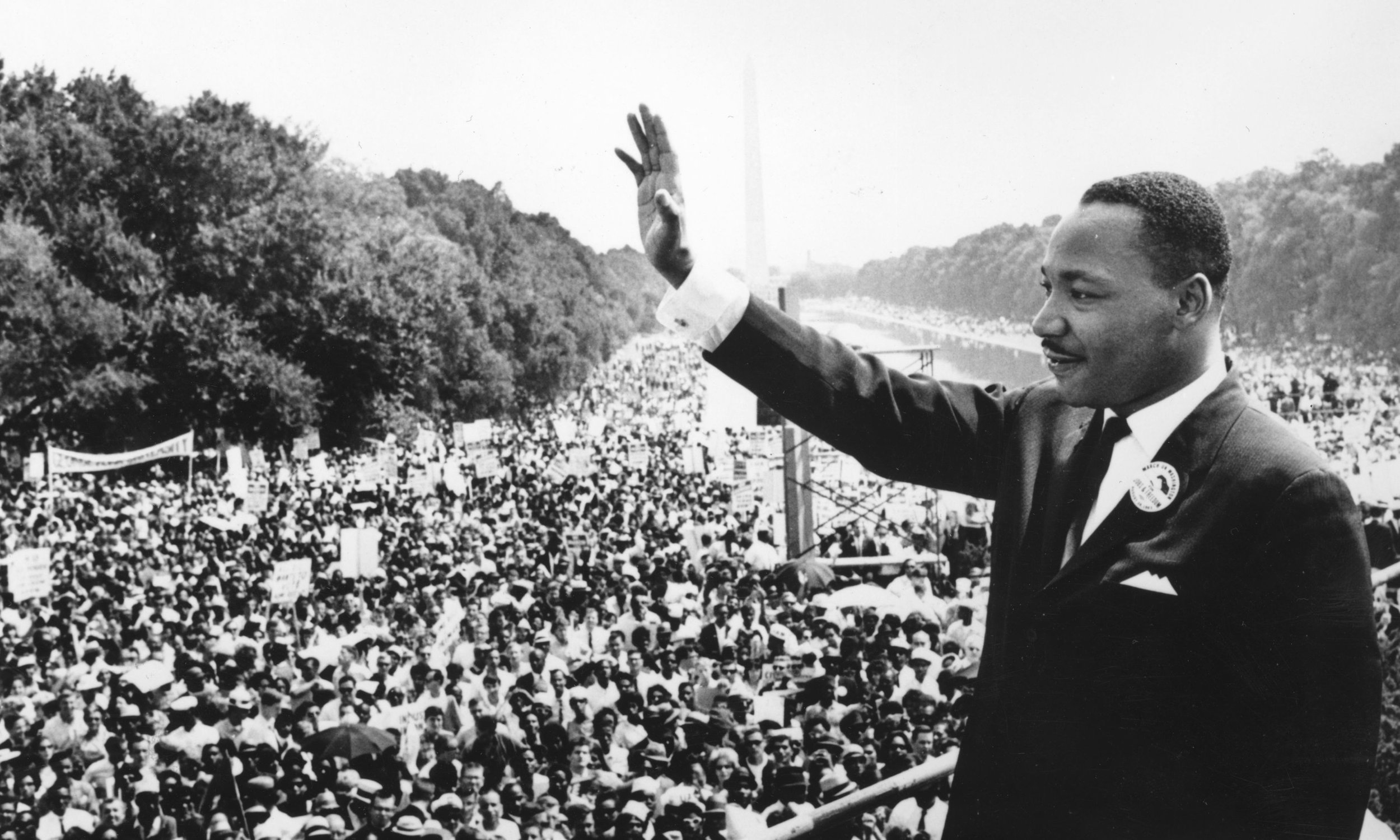60 Years of Martin Luther King Jr’s Dream and the Bristol Bus Boycotts: Our Resolutions Indestructible, our Spirits Unconquerable
A special blog written by Japheth Monzon, BSWN Project Officer
The word diamond finds its etymological roots in the Ancient Greek word adamas – unconquerable, indestructible. Therefore, it is unsurprising that we continue to celebrate Rev. Martin Luther King Jr.s’ (MLK) I Have a Dream speech on its Diamond anniversary.
© AFP via Getty Images - Civil rights leader Martin Luther King Jr. addresses the crowd at the Lincoln Memorial in Washington, D.C., where he gave his "I Have a Dream" speech on Aug. 28, 1963, as part of the March on Washington.
2023 marks the 60th year anniversary of when the words “I have a dream…” were first uttered on the steps of the Lincoln Memorial in Washington D.C. Since then, the prelude to MLK’s iconic speech has rehashed, reflected upon, and reiterated in various forms. uDiscover has found that ‘I Have a Dream…’ has been sampled by various artists a total of 110 times over 6 decades, demonstrating the resilient nature of a dream for a better future. Indeed, the power of his words demonstrates the social justice movement’s ability to adapt to the changing oppressive structures of society as the march of time passes. CNN’s John Blake emphasises that this speech – in spite of the common perception that many have of it – is King’s most radical speech, not because of its impact, but because of how it prompts us to reflect on the progress we have made since that fateful day in 1963.
MLK dreamed of integration, a concept that still stokes fear in the polarised politics of modern times. This is not just a sharing of space but entails an essential sharing of power. BSWN recognises this aspect of integration, for space limits us physically, yet power – on top of physical limitations – also limits us spiritually and mentally. As a result, BSWN has made efforts to push for the sharing of power between the hegemonically powerful with the systemically disadvantaged: from capacity-building initiatives, to research co-production, to policy work advocating for the interests of Bristol’s Black and Minoritised communities.
Indeed, MLK’s words remain to ring true: “What does it profit a man to be able to eat at an integrated lunch counter if he doesn’t earn enough money to buy a hamburger and a cup of coffee.” And yet, this aspect of MLK’s legacy is subject to a concerted effort of whitewashing for, what is succinctly termed, a ‘More Beautiful and Terrible History’ (Democracy Now, 2018), referring to revisionist attempts to white-wash history in an effort to make it more ‘beautiful’, devoid of its trials and tribulations; terrible in that the true nature of the fight for civil rights is effectively erased. The work of MLK must be re-seen as the radical, collectivist movement that it was, contrary to the revisionist attempts at his character. In 2015, former governor of Arkansas, Mike Huckabee, stated that MLK would be “appalled” at the Black Lives Matter movement, reducing MLK’s legacy to a more palatable, and non-disruptive effort at racial equality. Dr. Jane Thea Harris is astute in her observations that MLK’s work is purposefully disruptive, there is “no business as usual” until the rights of Black and Minoritised people are respected. Similarly, Dr. Harris also emphasises the disruptive nature of the Montgomery Bus Boycotts.
© Historic England - A plaque at Bristol Bus Station commemorates the little-known Bristol boycott.
Naturally, one may be able to extend Dr Harris’s assessment to Bristol’s own Bus Boycotts, which also reaches its 60th anniversary in 2023. The Bristol Bus Boycott, which occurred in response to the Bristol Omnibus Company’s refusal to employ Black and Asian bus drivers, had a seismic impact on race relations in the United Kingdom, culminating in the passing of the 1965 Race Relations Act that outlawed racial discrimination in public places. This Act was also followed by the Race Relations Act of 1968, which extended these protections to employment and housing as well. The 60th Anniversary of the Bristol Bus Boycotts draws attention to the living history of Bristol’s fight for racial equality. The passing of Roy Hackett – a central figure in the Bristol Bus Boycotts – earlier last year reminds us that giants of civil rights movements, living and recently departed, reside amongst us.
In our own fight for racial justice, we must remember the trails blazed by our elders and remember that their legacy was neither deemed palatable nor easily digestible, but was won through grit and resilience for a society where all are treated equally.
The disruptive nature of these Boycotts must not be forgotten, nor should it succumb to efforts in creating a more ‘Beautiful and Terrible’ history devoid of hard-hitting truths. With the waves of boycotts and strikes occurring throughout the country, as well as counter-movements that take aim at the public disruption that arises from protests, we must do well to remember that the legacies of those who have succeeded in achieving their goals – whether from Washington D.C. or our very own Bristol – were always disruptive. If we are to achieve a more just and equitable society, it must be done in a way that disrupts the status quo, not in a way that sits meekly beneath it. If change is to happen, our resolution should be indestructible, our spirit unconquerable – just like a diamond.



